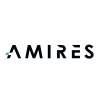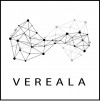International standards on nanotechnologies are mainly elaborated in two standards development organisations that are the International Organisation for Standardization (ISO) and the International Electrotechnical Commission (IEC).
International Organisation for Standardization (ISO)
The International Organisation for Standardization (ISO) Technical Committee (TC) 229 on Nanotechnologies was established in 2005 and has been developing standards related to the field of nanotechnologies. The committee's work has been divided as follows:
- JWG 1 Terminology and nomenclature, linked to IEC/TC 113
- JWG 2 Measurement and characterization, linked to IEC/TC 113
- TG 2 Consumer and societal dimensions of nanotechnologies
- TG 3 Nanotechnologies and sustainability
- WG 3 Health, Safety and Environmental Aspects of Nanotechnologies
- WG 4 Material specifications
Joint working groups organise their work in collaboration with the International Electrotechnical Commisison. JWG1 has been given the task of developing definitions for various nano-related terms such as 'nanoscale', 'nanomaterial', 'nanoparticle' amongst many others.
JWG2's focus is on developing measurement methods, with early work concentrating in particular on the characterisation of single and multiwall carbon nanotubes, an important group of nanomaterials.
Task Groups deal with consumer and societal issues (TG2) and sustainability (TG3).
The role of working group 3 is related to the health- and safety-aspect of nanotechnologies, for example the handling and disposal of nanomaterials, risk assessments performed on nanomaterials, etc., while WG4 is working on developing specifications for nanomaterials, in order to support their growing use by industry.
ISO/TC 229 published a number of standards over the last couple of years. Follow this link to find out more or to purchase the relevant documents. Published terms and definitions can also be accessed for free via the ISO Concept Database.
International Electrotechnical Commission (IEC)
The International Electrotechnical Commission is a sister organisation of the ISO. It focuses on the preparation and publication of international standards for all electrical, electronic and related technologies.
Established in 2006, IEC Technical Committee 113 “Nanotechnology Standardization for electrical and electronic products and systems” aims at standardising the technologies relevant to electrical and electronic products and systems in the field of nanotechnology, it cooperates closely with ISO/TC 229.
It is composed as follows:
- JWG 1Terminology and nomenclature, linked to ISO/TC 229
- JWG 2 Measurement and characterization, linked to ISO/TC 229
- WG 3 Performance assessment
- WG 7 Reliability
Several project teams and joint project teams are focusing on specific standards. The full structure of the IEC/TC 113 can be found here.
Two joint working groups are set in collaboration with ISO/TC 229.
Working Group 3 focuses on developing standards for the assessment of performance, reliability and durability. Focusing on reliability, standards to be developed in WG 7 include test methods to identify failure mechanisms, determine the lifetime and the analysis of failure effects of nano-enabled products.
Standards developed by IEC/TC 113 can be found and purchased here.



















